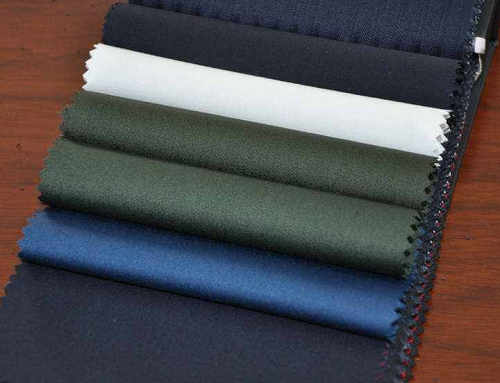Functional fabrics mean that in addition to the characteristics of the fabric itself, they also have functions such as waterproofing and anti-static. They are generally processed to adapt to certain special environments. There are many types of functional fabrics. Below, I will introduce you to a few. A common functional fabric.

Waterproof fabric: It is usually made of PTFE membrane and composite fabric. In addition to being waterproof, the latest waterproof fabric can also drain the internal moisture to the outside and evaporate, and is breathable. It has been greatly improved compared to before, and the occurrence of mildew has been greatly reduced.
Color-changing fabric: This is a fabric that changes color as the external environment (light, heat, temperature, etc.) changes. During processing, just apply the discolored material on the cloth surface. Color-changing fabrics are mainly used In terms of making transportation clothes, swimsuits and other clothing, color-changing fabrics are also used in some performance clothes.
Flame-retardant fabrics: Flame-retardant fabrics are also new functional fabrics. They are made of polyester/pure cotton treated with flame retardants. The fabrics are non-toxic, safe and washable. Flame-retardant fabrics will be used in the metallurgical and chemical industry. And protective clothing will be used in the fire protection field.
Thermal insulation fabric: As the name suggests, it is a fabric with thermal insulation effect. It achieves thermal insulation effect by converting solar energy into heat.
Anti-static fabric: This kind of fabric can avoid the generation of static electricity to a large extent, and dust in the air is not easy to adhere to clothing. It is used in the production of dust-proof clothing, carpets and other fabrics.
Radiation-proof fabric: Metal is infiltrated into the fabric through electrolysis to achieve the effect of radiation protection. It is often used in telecommunications transmitter rooms. Another type of radiation-proof fabric draws metal into filaments and blends it with fabric, but the radiation-proof effect is not as good as the first one.
Antibacterial and deodorant fabrics: With the upgrade of technology, the antibacterial properties of fabrics have been very perfect and are gradually used in the field of clothing and home textiles.
Electromagnetic wave shielding fabric: This kind of fabric is mainly used to reduce the impact of electromagnetic waves emitted by televisions, computers and other equipment on the human body, but it is not used much in home clothing.




